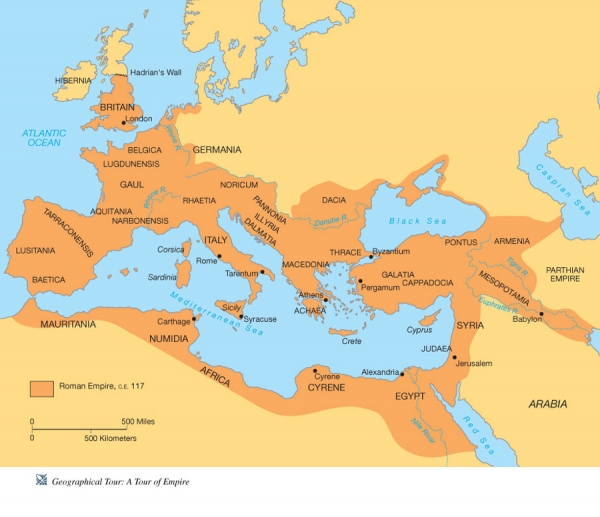The Greek Roman Era
According to history, the year placed on when the Roman conquest of Greece began is 146 B.C., after the dissolution of the city Corinth by Roman military leadership. The first decisive step, however, happened in 197 B.C., with the fall of Philip V, king of Macedonia, following the battle at Kynos Kyphalae. Within a short period of time, the Romans found themselves reigning over the entire Mediterranean.
The Roman Empire, under the rule of Julius Caesar and later Octavius, spanned the entire Mediterranean, most of Europe, into Asia and Northern Africa. The multicultural tolerance of the Roman rulers allowed for the survival, and even development of Hellenism, and despite their subservience, the Greeks maintained their traditions and distinct culture, while lending ideas to the Romans. For that reason, the Greek civilization was able to develop under what is now called the Greco-Roman Era.
An important factor that influenced the Greeks during the Roman occupation was the spread of Christianity by Paul the Apostle and the increasing rate of literacy within the Greek community, made possible largely by the dissemination of the Holy Scriptures. The eventual decline of the Roman Empire coincides with the emergence of the Byzantine state which was built the foundation of the next great empire.

